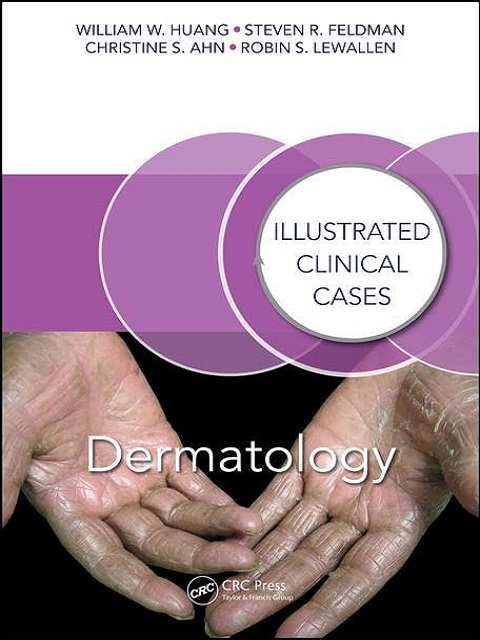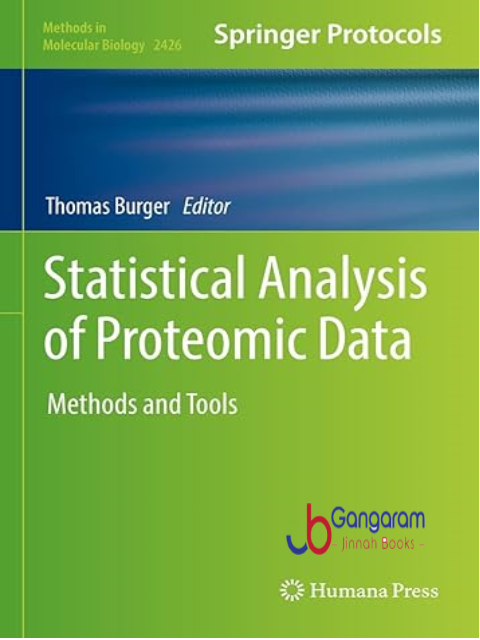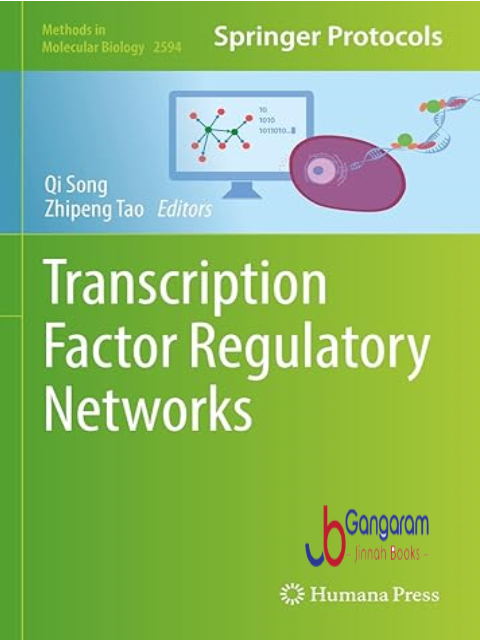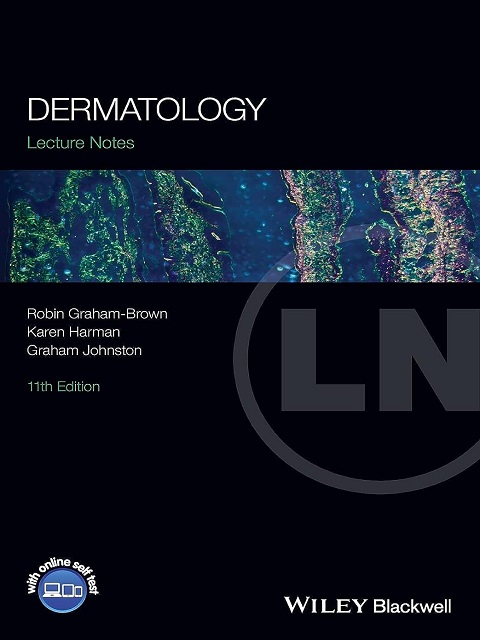 Dermatology Secrets 6th Editionby Whitney A. High MD JD MEng (Editor), Lori D. Prok MD (Editor)For more than 30 years, the highly regarded Secrets Series® has provided students and practitioners in all areas of health care with concise, focused, and engaging resources for quick reference and exam review. Dermatology Secrets , 6th Edition, offers practical, up-to-date coverage of the full range of essential topics in this dynamic field. This highly regarded resource features the Secrets’ popular question-and-answer format that also includes lists, tables, pearls, memory aids, and an easy-to-read style – making inquiry, reference, and review quick, easy, and enjoyable.
Dermatology Secrets 6th Editionby Whitney A. High MD JD MEng (Editor), Lori D. Prok MD (Editor)For more than 30 years, the highly regarded Secrets Series® has provided students and practitioners in all areas of health care with concise, focused, and engaging resources for quick reference and exam review. Dermatology Secrets , 6th Edition, offers practical, up-to-date coverage of the full range of essential topics in this dynamic field. This highly regarded resource features the Secrets’ popular question-and-answer format that also includes lists, tables, pearls, memory aids, and an easy-to-read style – making inquiry, reference, and review quick, easy, and enjoyable.- The proven Secrets Series® format gives you the most return for your time – succinct, easy to read, engaging, and highly effective.
- Fully revised and updated, including protocols and guidelines that are continuously evolving and that increasingly dictate best practices.
- Abundantly illustrated in full color throughout.
- Top 100 Secrets and Key Points boxes provide a fast overview of the secrets you must know for success in practice and on exams.
- Bulleted lists, mnemonics, practical tips from leaders in the field – all providing a concise overview of important board-relevant content.
- Portable size makes it easy to carry with you for quick reference or review anywhere, anytime.
- Enhanced eBook version included with purchase. Your enhanced eBook allows you to access all of the text, figures, and references from the book on a variety of devices.
- Sale!
 This book explores the most important processing steps of proteomics data analysis and presents practical guidelines, as well as software tools, that are both user-friendly and state-of-the-art in chemo- and biostatistics. Beginning with methods to control the false discovery rate (FDR), the volume continues with chapters devoted to software suites for constructing quantitation data tables, missing value related issues, differential analysis software, and more. Written for the highly successful Methods in Molecular Biology series, chapters include the kind of detail and implementation advice that leads to successful results. Authoritative and practical, Statistical Analysis of Proteomic Data: Methods and Tools serves as an ideal guide for proteomics researchers looking to extract the best of their data with state-of-the art tools while also deepening their understanding of data analysis.
This book explores the most important processing steps of proteomics data analysis and presents practical guidelines, as well as software tools, that are both user-friendly and state-of-the-art in chemo- and biostatistics. Beginning with methods to control the false discovery rate (FDR), the volume continues with chapters devoted to software suites for constructing quantitation data tables, missing value related issues, differential analysis software, and more. Written for the highly successful Methods in Molecular Biology series, chapters include the kind of detail and implementation advice that leads to successful results. Authoritative and practical, Statistical Analysis of Proteomic Data: Methods and Tools serves as an ideal guide for proteomics researchers looking to extract the best of their data with state-of-the art tools while also deepening their understanding of data analysis. - Sale!
 This detailed volume provides a comprehensive collection of protocols for epigenomic research, powering our ability to analyze epigenetic modifications across the entire genome. Beginning with methods used to investigate epigenomic modifications such as DNA methylation, histone modifications, and chromatin structure, the book continues with methods for manipulating the epigenome, including platforms for epigenome editing, inducible systems for epigenome editing, and epigenetically modified animals. Written for the highly successful Methods in Molecular Biology series, chapters feature introductions to their respective topics, lists of the necessary materials and reagents, step-by-step and readily reproducible laboratory protocols, and tips on troubleshooting and avoiding known pitfalls. Authoritative and practical, Epigenomics: Methods and Protocols serves as an ideal resource for researchers looking to further expand the utility and scope of epigenomics research.
This detailed volume provides a comprehensive collection of protocols for epigenomic research, powering our ability to analyze epigenetic modifications across the entire genome. Beginning with methods used to investigate epigenomic modifications such as DNA methylation, histone modifications, and chromatin structure, the book continues with methods for manipulating the epigenome, including platforms for epigenome editing, inducible systems for epigenome editing, and epigenetically modified animals. Written for the highly successful Methods in Molecular Biology series, chapters feature introductions to their respective topics, lists of the necessary materials and reagents, step-by-step and readily reproducible laboratory protocols, and tips on troubleshooting and avoiding known pitfalls. Authoritative and practical, Epigenomics: Methods and Protocols serves as an ideal resource for researchers looking to further expand the utility and scope of epigenomics research. - Sale!
 This book covers various state-of-the-art techniques regarding the associations between transcription factors (TFs) and genes, with a focus on providing methodological and practical references for researchers. The contents cover diverse protocols and summaries of TFs including screening of TF-DNA interactions, detection of open chromatin regions, identification of epigenetic regulations, engineering TFs with genome editing tools, detection of transcriptional activities, computational analysis of TF networks, functions and druggabilities of TFs in biomedical research, and much more. Written for the highly successful Methods in Molecular Biology series, chapters feature the kind of detailed implementation advice from the experts to ensure successful research results. Authoritative and cutting-edge, Transcription Factor Regulatory Networks aims to benefit readers who are interested in using state-of-the-art techniques to study TFs and their myriad effects in cellular life.
This book covers various state-of-the-art techniques regarding the associations between transcription factors (TFs) and genes, with a focus on providing methodological and practical references for researchers. The contents cover diverse protocols and summaries of TFs including screening of TF-DNA interactions, detection of open chromatin regions, identification of epigenetic regulations, engineering TFs with genome editing tools, detection of transcriptional activities, computational analysis of TF networks, functions and druggabilities of TFs in biomedical research, and much more. Written for the highly successful Methods in Molecular Biology series, chapters feature the kind of detailed implementation advice from the experts to ensure successful research results. Authoritative and cutting-edge, Transcription Factor Regulatory Networks aims to benefit readers who are interested in using state-of-the-art techniques to study TFs and their myriad effects in cellular life. - Sale!
 This volumeprovides a comprehensive reference for researchers aiming to bring new techniques and approaches to their scientific research using urodeles. Chapters are authored by leaders in the field and meant to guide readers through laboratory colony husbandry, traditional molecular techniques, experimental manipulation and surgeries, bioinformatics and genomics, transgenics and lineage-tracing, and physiological and organismal techniques. In addition to laboratory methods, this volume highlights techniques developed for field studies and work with wild-caught animals. Written in the successful Methods in Molecular Biology series format, chapters include introductions to their respective topics, lists of the necessary materials and reagents, step-by-step, readily reproducible protocols, and notes on troubleshooting and avoiding known pitfalls.Authoritative and state-of-the-art, Methods in Salamander Research aims to be a practical guide for researchers interested in deploying new methodologies in their lab or in the field.
This volumeprovides a comprehensive reference for researchers aiming to bring new techniques and approaches to their scientific research using urodeles. Chapters are authored by leaders in the field and meant to guide readers through laboratory colony husbandry, traditional molecular techniques, experimental manipulation and surgeries, bioinformatics and genomics, transgenics and lineage-tracing, and physiological and organismal techniques. In addition to laboratory methods, this volume highlights techniques developed for field studies and work with wild-caught animals. Written in the successful Methods in Molecular Biology series format, chapters include introductions to their respective topics, lists of the necessary materials and reagents, step-by-step, readily reproducible protocols, and notes on troubleshooting and avoiding known pitfalls.Authoritative and state-of-the-art, Methods in Salamander Research aims to be a practical guide for researchers interested in deploying new methodologies in their lab or in the field. - Sale!
 This second edition provides new and updated chapters detailing all major elements of the ECB system. Chapters guide readers through identification of drug targets, electrophysiology, computational chemistry, and machine learning. Written in the successful Methods in Molecular Biology series format, chapters include introductions to their respective topics, lists of the necessary materials and reagents, step-by-step, readily reproducible protocols, and notes on troubleshooting and avoiding known pitfalls.Comprehensive and cutting-edge, Endocannabinoid Signaling: Methods and Protocols, Second Edition is a valuable resource for all researchers interested in learning more about this important and developing field.
This second edition provides new and updated chapters detailing all major elements of the ECB system. Chapters guide readers through identification of drug targets, electrophysiology, computational chemistry, and machine learning. Written in the successful Methods in Molecular Biology series format, chapters include introductions to their respective topics, lists of the necessary materials and reagents, step-by-step, readily reproducible protocols, and notes on troubleshooting and avoiding known pitfalls.Comprehensive and cutting-edge, Endocannabinoid Signaling: Methods and Protocols, Second Edition is a valuable resource for all researchers interested in learning more about this important and developing field. - Sale!
 Indian mycologists have extensively studied various groups of fungi such as soil fungi, aquatic fungi, marine fungi, endophytic fungi, fungi associated with man and animals. Though several books on various aspects of fungi are published, this is the first account of the history and development in mycology in India. This book is the second volume of the two-volume book "Progress in Mycology: An Indian Perspective".While volume 1 contains the historical aspects, taxonomy and information about the various groups of fungi, this volume focuses majorly on the biotechnological applications of the different groups of fungi. It discusses topics such as the extremophilic fungi, the history and development in Candida research, progress of mycotoxin research in India etc. It provides a detailed account of the various enzymes and bio-active molecules derived from fungi. India shows a very high biodiversity of fungi, and this book discusses these different group of fungiand their industrial and biotechnological applications.This book is useful to students, teachers and researchers in botany, microbiology, biotechnology and life sciences, agriculture and industries using fungi to produce various valuable products.
Indian mycologists have extensively studied various groups of fungi such as soil fungi, aquatic fungi, marine fungi, endophytic fungi, fungi associated with man and animals. Though several books on various aspects of fungi are published, this is the first account of the history and development in mycology in India. This book is the second volume of the two-volume book "Progress in Mycology: An Indian Perspective".While volume 1 contains the historical aspects, taxonomy and information about the various groups of fungi, this volume focuses majorly on the biotechnological applications of the different groups of fungi. It discusses topics such as the extremophilic fungi, the history and development in Candida research, progress of mycotoxin research in India etc. It provides a detailed account of the various enzymes and bio-active molecules derived from fungi. India shows a very high biodiversity of fungi, and this book discusses these different group of fungiand their industrial and biotechnological applications.This book is useful to students, teachers and researchers in botany, microbiology, biotechnology and life sciences, agriculture and industries using fungi to produce various valuable products. - Sale!
 This fully updated edition provides a series of methods for how best to assess functions of histone deacetylases and acetyltransferases. The disease-relevance of dysregulated protein deacetylation by overexpressed or aberrantly activated histone deacetylases has spurred an intense search for novel and improved inhibitors of these enzymes, as reflected in this collection. Expert contributors explore the generation and evaluation of novel histone deacetylase inhibitors and new and improved techniques to assess acetylation-dependent molecular mechanisms in vitro and in vivo. Written for the highly successful Methods in Molecular Biology series, chapters include introductions to their respective topics, lists of the necessary materials and reagents, step-by-step and readily reproducible laboratory protocols, and tips on troubleshooting and avoiding known pitfalls. Authoritative and up-to-date, HDAC/HAT Function Assessment and Inhibitor Development: Methods and Protocols, Second Edition serves as an ideal guide for researchers seeking to further elucidate this vital area of study.
This fully updated edition provides a series of methods for how best to assess functions of histone deacetylases and acetyltransferases. The disease-relevance of dysregulated protein deacetylation by overexpressed or aberrantly activated histone deacetylases has spurred an intense search for novel and improved inhibitors of these enzymes, as reflected in this collection. Expert contributors explore the generation and evaluation of novel histone deacetylase inhibitors and new and improved techniques to assess acetylation-dependent molecular mechanisms in vitro and in vivo. Written for the highly successful Methods in Molecular Biology series, chapters include introductions to their respective topics, lists of the necessary materials and reagents, step-by-step and readily reproducible laboratory protocols, and tips on troubleshooting and avoiding known pitfalls. Authoritative and up-to-date, HDAC/HAT Function Assessment and Inhibitor Development: Methods and Protocols, Second Edition serves as an ideal guide for researchers seeking to further elucidate this vital area of study. - Sale!
 This detailed volume collects updates on the technical advances in hematopoietic stem cell research and incorporates new techniques focused on the molecular/genetic, cellular, and whole organism levels. Exploring methods that apply stress to hematopoiesis, the book also contains chapters focused on better understanding the role of hematopoietic niches and their cellular components, as well as in vivo models that test and quantitate stem cell function and are key to further development of therapeutic applications. Written for the highly successful Methods in Molecular Biology series, chapters include introductions to their respective topics, lists of the necessary materials and reagents, step-by-step and readily reproducible laboratory protocols, and tips on troubleshooting and avoiding known pitfalls. Authoritative and up-to-date, Hematopoietic Stem Cells: Methods and Protocols serves as a valued addition to laboratories focused on understanding hematopoietic stem cell biology and the therapeutic advances that can be derived from it.
This detailed volume collects updates on the technical advances in hematopoietic stem cell research and incorporates new techniques focused on the molecular/genetic, cellular, and whole organism levels. Exploring methods that apply stress to hematopoiesis, the book also contains chapters focused on better understanding the role of hematopoietic niches and their cellular components, as well as in vivo models that test and quantitate stem cell function and are key to further development of therapeutic applications. Written for the highly successful Methods in Molecular Biology series, chapters include introductions to their respective topics, lists of the necessary materials and reagents, step-by-step and readily reproducible laboratory protocols, and tips on troubleshooting and avoiding known pitfalls. Authoritative and up-to-date, Hematopoietic Stem Cells: Methods and Protocols serves as a valued addition to laboratories focused on understanding hematopoietic stem cell biology and the therapeutic advances that can be derived from it.



















